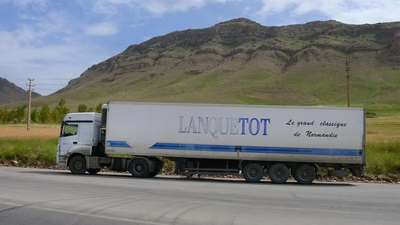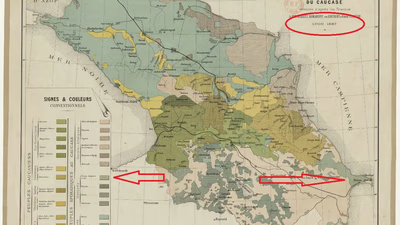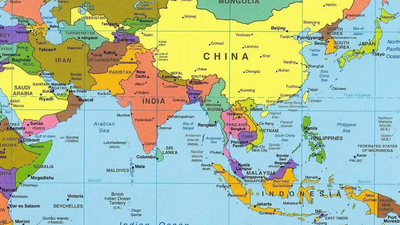
Azerbaijan"s trade includes machinery and consumer goods. "
Azerbaijan's imports are diverse and include a range of products and commodities. Azerbaijan imports machinery, industrial equipment, and technology for various sectors, including manufacturing, construction, and energy. trucks, motorcycles, and their components are imported to meet domestic transportation needs. including fertilizers, pharmaceutical products, and other chemical substances for various industries and healthcare purposes. including grains, meat, dairy products, fruits, vegetables, and seafood to supplement domestic production and meet consumer demand.
Despite being an oil-producing country, Azerbaijan still imports certain energy products. This includes imported natural gas, as Azerbaijan's domestic natural gas production may not always meet the demand. Additionally, Azerbaijan imports refined petroleum products such as gasoline and diesel fuel to supplement its domestic refining capacity. Azerbaijan imports a variety of construction materials, including cement, steel, timber, and other building products. These imports support the construction industry, which plays a significant role in the country's infrastructure development and urbanization.
Azerbaijan imports a wide range of consumer goods, including household appliances, furniture, clothing, footwear, cosmetics, and personal care products. These imports cater to the demand of the growing middle class and consumers seeking a variety of products from international brands. While Azerbaijan has a significant agricultural sector, it still imports certain agricultural products to meet domestic demand and supplement local production. This includes imports of grains, edible oils, sugar, coffee, tea, and various processed food products. The Republic of Azerbaijan is one of the largest importers in the region. Most of the imports of the Republic of Azerbaijan are from Turkey, Russia, China, Iran, Germany, and other European countries. The following is a list of imports of the Republic of Azerbaijan together with exporting countries:
- Import of salt, sulfur, soil, stone, gypsum to the Republic of Azerbaijan from Iran, Georgia, Russia, Turkey, Kazakhstan, Morocco.
- Plastics and their products are imported to the Republic of Azerbaijan from Iran, Turkey, Germany, South Korea, Saudi Arabia, Turkmenistan, China, Russia, and the UAE.
- Import of edible fruits and nuts to the Republic of Azerbaijan from Iran, Turkey, Ukraine, Ecuador, South Africa, Egypt, Belgium, Thailand, Uzbekistan.
- Vegetables, plants, and roots are imported to the Republic of Azerbaijan from Iran, Turkey, Russia, Georgia, China, Uzbekistan, and India.
- Glass and glass products are imported to the Republic of Azerbaijan from Iran, UAE, Russia, Turkey, Ukraine, China, Italy, and Germany.
- Ceramic products are imported to the Republic of Azerbaijan from Iran, Turkey, China, Ukraine, Italy, Spain, Russia, Germany, Belarus, and Poland.
- Iron and steel are imported to the Republic of Azerbaijan from Iran, Turkey, China, Ukraine, Kazakhstan, Georgia, Russia, Germany, and the United Kingdom.
- Organic chemical products are imported to the Republic of Azerbaijan from Iran, Turkey, China, Russia, Switzerland, the USA, UAE, Britain, and Germany.
- Stone, cement, and gypsum are imported to the Republic of Azerbaijan from Iran, Turkey, Russia, China, Italy, Germany, Ukraine, Georgia, and Belarus.
- Land vehicles are imported to the Republic of Azerbaijan from Iran, Germany, South Korea, Japan, Russia, Turkey, the USA, Czech Republic, and Italy.
- Imports and machines, water heaters to the Republic of Azerbaijan from Iran, Turkey, China, Britain, USA, Germany, Italy, Russia, South Korea.
- Shoes are imported to the Republic of Azerbaijan from Iran, Turkey, China, Italy, the USA, and Spain.
Azerbaijan imports textiles, fabrics, and clothing items to supplement the domestic textile industry and meet consumer demand. Consumer electronics, electrical appliances, and components are imported to fulfill the requirements of the growing technology and consumer electronics sector. Azerbaijan imports raw materials such as metals, minerals, and chemicals to support its manufacturing and industrial sectors. Despite being an oil-producing country, Azerbaijan also imports refined petroleum products to meet domestic demand.
Azerbaijan imports pharmaceutical products, medical equipment, and devices to support its healthcare system. This includes imported medicines, medical instruments, diagnostic equipment, and other healthcare supplies. Azerbaijan imports various types of transport equipment, including automobiles, trucks, buses, motorcycles, and their components. These imports cater to the country's transportation needs and support the automotive industry. Azerbaijan imports a range of chemicals, including industrial chemicals, fertilizers, and agricultural chemicals. These imports support various industries, including manufacturing, agriculture, and construction.
-

Azerbaijan"s economy is primarily driven by its oil and gas sectors, but the government is actively pursuing diversification into agriculture, tourism, and technology. Significant reforms have been implemented to enhance the business climate, including simplifying procedures and improving infrastructure. The country encourages foreign direct investment (FDI) through tax exemptions and streamlined processes for establishing various business entities. Azerbaijan"s strategic location at the crossroads of Europe and Asia positions it as a vital player in regional trade, participating in international economic organizations like the WTO and CIS. Importers must navigate specific documentation requirements, including contracts, customs declarations, and permits for certain goods. Exporters face similar regulations with additional licenses required for strategic goods. While Azerbaijan offers numerous opportunities for trade, challenges such as economic dependence on oil prices and political instability due to regional conflicts persist. Businesses can access resources from organizations like AZPROMO and the Ministry of Economy to better understand the local market dynamics.
-

Azerbaijan"s economy remains heavily reliant on oil and gas, with petroleum products constituting over 90% of exports. Despite government efforts to diversify the economy and strengthen the non-oil sector, investments continue to favor energy projects. The country ranks 25th in ease of doing business, reflecting improvements in the investment climate. However, infrastructure challenges persist, particularly in logistics and transport services, where Azerbaijan ranks poorly globally. The government prioritizes border crossing projects but needs to enhance local road networks for better internal communication. While there are plans for investments in renewable energy, they lag behind oil and gas initiatives. Azerbaijan"s strategic location between Europe and Asia offers potential for trade growth, yet issues like corruption and a weak banking system hinder development. The country has significant oil reserves in the Caspian Sea and is developing its resources with foreign partnerships. Although non-oil sectors like tourism and agriculture are growing, reliance on hydrocarbon revenues remains high, complicating diversification efforts.
-

Azerbaijan"s imports encompass a wide array of products, including machinery, industrial equipment, and technology essential for sectors like manufacturing and construction. The country also imports transportation vehicles such as trucks and motorcycles to meet domestic needs. Agricultural imports include grains, meat, dairy products, fruits, and vegetables to satisfy consumer demand despite a robust local agricultural sector. Notably, Azerbaijan continues to import energy products like natural gas and refined petroleum to supplement its domestic production capabilities. The construction industry relies heavily on imported materials such as cement, steel, and timber for infrastructure development. Consumer goods are also a significant part of imports, catering to the growing middle class with household appliances, clothing, and personal care items. Major import partners include Turkey, Russia, China, Iran, and Germany. Specific commodities imported range from plastics and organic chemicals to glass products and textiles. This diverse import landscape highlights Azerbaijan"s reliance on international trade to support its economy across various sectors.
-

Azerbaijan is predominantly a Muslim country, with 99. 2% of its population identifying as Muslims, primarily following Shia Islam. The nation has a rich history of secularism and promotes religious tolerance, allowing various communities, including Christians and Jews, to coexist peacefully. The official language is Azerbaijani (Azeri Turkish), which is closely related to modern Turkish and written in a modified Latin alphabet. Russian remains widely spoken due to historical influences, particularly among older generations. English is increasingly popular among the youth, reflecting Azerbaijan"s growing international connections. The country also recognizes and supports minority languages such as Lezgian and Talysh. Azerbaijani culture is deeply influenced by Iranian, Turkish, and Caucasian heritages, showcasing traditions that span all life stages and public celebrations. Despite globalization"s impact on cultural practices, many traditions remain significant in daily life.
-

Azerbaijan"s demographic landscape is shaped by its strategic location at the crossroads of Eastern Europe and Western Asia. The country, part of the South Caucasus region, has a population of approximately 10 million, predominantly consisting of Azerbaijani Turks who are mostly Muslim and speak Azerbaijani. Ethnic diversity includes significant minorities such as Lezgins in the north and Russians in urban areas like Baku. Historically, the Armenian population has diminished due to conflict, while Talysh communities reside in the south. Geographically, Azerbaijan features diverse landscapes including the Caspian Sea coastline, Greater Caucasus Mountains, and central plains. This unique positioning not only influences its cultural dynamics but also its economic activities, particularly in trade and energy resources. The country is rich in oil and gas reserves, contributing to its importance in regional commodity trade. Azerbaijan"s secular governance allows for various religious practices alongside a predominantly Shia Muslim population.
Overall, Azerbaijan"s geographical and demographic attributes play a crucial role in shaping its trade relationships within West Asia. "





